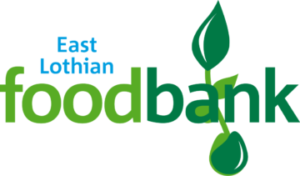We live in a place well known for its community spirit and where neighbour helps neighbour. However, right now, far too many people in our community are living in poverty, and it’s not right that any of us are forced to turn to a charity for emergency food.
Last week someone said “yes, I know that people need your help but what does poverty really mean today?” If you’re also wondering what poverty actually means and what the impact is on our community, here’s an overview provided by the Poverty Alliance, Scotland’s anti-poverty network. They bring together campaigners and communities to rebalance the distribution of power and resources by influencing policy and practice, supporting communities to challenge poverty, building the anti-poverty movement, changing attitudes and providing evidence through research.
What is poverty and how is it measured?
Poverty means not being able to make ends meet. Not being able to heat your home, pay your rent or buy essentials. It means waking up every day facing insecurity, uncertainty and impossible decisions about money.
The measure used by the Scottish and UK Governments is “Households below the average income” (HBAI). You are considered to be living in poverty if your household income is less than 60% of the median household income.
The extent of poverty in Scotland
It is estimated that 19% of Scotland’s population (1.03 million people each year) were living in relative poverty after housing costs in 2017-20.
It is estimated that 24% of children (240,000 children each year)were living in relative poverty after housing costs in 2017-20. (Source: Scottish Government).
The effects of poverty
Living in poverty means a household’s income is less than 60% of the median household income. What does this mean in reality. Here are some effects poverty can have on peoples’ lives:
- Children going without things they need, like toys or school uniforms.
- Adults not being able to afford things they need like household goods, clothes or travel costs to work or job interviews.
- Social exclusion – being unable to participate in aspects of society like school trips or social activities.
- Not being able to pay essential bills like heating or electricity.
- Mental health problems like anxiety or depression. Going without the things you need or enjoy can make life difficult and stressful.
Causes of poverty
Unemployment/insecure employment
Unemployment/insecure employment, low pay, and the cost of living are some of the reasons why many people are living in poverty.
Households in which no one is in paid employment are most likely to experience poverty. It is estimated that in 2017-20, 68% of children in relative poverty after housing costs were living in working households(160,000 children each year). (Source: Scottish Government)
Job insecurity and short-term, part time working patterns are contributing to the numbers of people in poverty.
Low Pay
Employment does not guarantee a route of poverty. 182,000 children in Scotland live in poverty despite having one person in their household in work.
Low pay is a major contributory factor to poverty in Scotland. This is known as ‘in work poverty’. Those living on the national minimum wage (NMW) struggle to keep their head above water.
The real Living Wage is £9.50 per hour, but 470,000 people in Scotland don’t earn the real Living Wage.
Cost of living
The price of essential items such as food, energy and transport have risen in recent years. This puts pressure on low income households. The poorest fifth of households spend twice as much of their income on food and fuel compared to households in the top fifth of income.
Low income families struggle with the costs involved in sending children to school, e.g. uniform, travel, trips.
Affordable childcare can be a barrier for women going out to work. Nursery fees and after school care is expensive.
Solutions to poverty
There are many actions we could take to pull people out of poverty in Scotland. These include:
- Boosting incomes – living wage and secure jobs
Too many people are struggling with ‘in work’ poverty. It is essential that people receive a real Living Wage. People need job security and opportunities to develop their skills and progress at work. - Improve social security systemWhen it was set up, the social security system aimed to support people from the ‘cradle to the grave’ and part of this was a benefit system that would act as a safety net when people are in need. Recent changes to the benefit system are pushing more people into poverty.
- There needs to be an increase in benefit rates.
- Benefit rates should rise in line with inflation.
- We need to ensure people are accessing the benefits they are entitled to.
- Lower cost of living
-
- Companies should ensure that the poorest in society are not paying more for essential items.
- We need to look at the cost of the school and remove financial barriers to education. Introduce free school meals, adequate clothing grants. Review the cost of travel and school trips to make them affordable for all
- Increase provision of affordable childcare, both nursery and after school care.
What can you do?
Have your voice heard and help build Scotland’s anti-poverty movement. Voice your concerns about poverty.
Ask your MSP to make tackling poverty a priority in 30 seconds using this tool: https://povertyalliance.eaction.org.uk/ChallengePovertyWeekMSP
Find out how else you can get involved and get your voice heard https://www.povertyalliance.org/get-involved/
